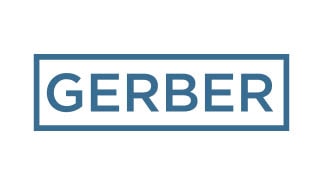Published on
May 25th, 2023How a Whole-Building Water Filtration System Can Solve Common Water Problems
New York City has the largest unfiltered water system in the country, including drinking water. While the city treats its water with fluoride, chlorine, orthophosphate, ultraviolet light, and sodium hydroxide to make it safe, the treatment does not resolve all issues for property owners. Many tenants still complain of taste, odor, and cloudiness and express concerns about bacteria and virus levels in supplies. A whole-building water filtration system can help resolve these issues. Discover how.
Advantages of a Whole-Building Water Filtration System
Improves Water Taste and Smell
Unfiltered water can have an unpleasant odor and taste, depending on the source of the supply. The smell can stem from the presence of sulfur in the water, which gives off the aroma of rotten eggs. The unusual taste can arise from the different mineral deposits and the presence of chemicals and other impurities.
Water filters can remove or trap impurities. A carbon filter, for example, is porous with a large surface area. The problem compounds stick or bond to the filter as water seeps through it. With the compounds mostly removed, the water’s taste and smell improve.
Activated carbon filters require routine replacement. A carbon filtration system might not be the most practical for an entire building, although they are the most affordable option.
Most whole-building systems use various methods to ensure clean, pure water output. Talk to the professionals at Sanitary Plumbing to learn more about water filtration technology and the benefits to your property.
Removes Excess Minerals and Chemicals
A whole-building water filtration system cleans the water directly from the supply. Unlike under sink filters or faucet attachments, a whole-building system eliminates damaging compounds before they enter your property, potentially harming pipes and appliances. Excessive mineral deposits can cause hard water, staining, and cloudy, unappealing water.
A common complaint about the NYC water supply is that it produces hard water — a result of dissolved magnesium, calcium, and iron. Depending on the system installed in your property, you may be able to correct the problem for your tenants. While a typical filtration system will remove excess compounds and mineral deposits, a water softener is the best way to improve water quality for bathing.
Beyond mineral deposits, NYC’s water supply contains chlorine, which is potentially harmful to your health, depending on the levels in the supply. A whole-building water filtration system treats the supply with various filters to remove chlorine, resulting in healthier drinking and bathing water.
Improves Health and Safety for Tenants
While there are no significant health risks from drinking hard water, bathing in it can cause dry skin and affect hair health. Some people will experience hair loss from hard water exposure. Also, the hardness level of water can affect the pH balance of your skin, weakening the barrier and exposing tenants to bacteria and infections.
A standard water filter will not resolve hard water issues, but a whole-building system that includes a water softener can because it removes excess calcium and magnesium. Whole-building systems also eliminate bacteria and viruses.
According to the CDC, over 7 million Americans get sick from waterborne diseases and infections annually. The common causes of these illnesses are viruses, protozoa, and bacteria in the water supply. A whole-building water filtration system can remove most of these contaminants, ensuring your property’s water supply is safe and free of microbial pathogens.
Reduces Maintenance Costs
NYC’s typical mineral-heavy water supply is not complementary to standard plumbing systems and appliances. The mineral deposits can cause scaling and buildup in pipes, faucets, washing machines, and many other appliances. The damage can also affect the lifespan and vibrancy of tenants’ clothing and fabrics, which can lead to frustrated renters, potentially resulting in unexpected vacancies.
The signs of damage to plumbing and appliances might not be apparent right away. You might notice a slight decline in appliance efficiency or staining around drains and faucets. If water has low pH levels, you’ll notice blue-green staining around drains, most noticeable on white surfaces. The more classic brown or orange rust-looking stain results from iron and manganese deposits.
While you might question the investment of installing a whole-building water filtration system to address mineral deposits and pH levels, keep in mind that a contaminated water supply can adversely affect the lifespan of your plumbing.
Contributes to a “Green” Mindset
Any New Yorker knows that the city and the state are focused on improving environmental awareness through regulatory actions. With pledges to cut fossil fuel consumption and greenhouse gases, NYC aims to be the poster child of ecological consciousness. A water filter system in your property can help reduce fossil fuel consumption in the city by contributing to less plastic waste.
One of the most significant contributors to pollution and environmental crises is plastic manufacturing and disposal. While water filtration may not have a direct effect on plastic production, it can relieve the dependence on it.
If you install a whole-building water filtration system in your property, your tenants receive refreshing, tasty, and healthy drinking water. With suitable drinking water, your tenants are less likely to purchase bottled water, instead depending on their existing in-unit supply.
In 2017, NYC had over 3.4 million housing units. Approximately one-third were owner-occupied, leaving two-thirds renter-occupied. With over 2 million tenants in the city, water filtration could have a drastic effect on bottled water consumption, helping the surrounding environment with rippling effects throughout the industry.
Installation of a Water Filtration System for the Whole Building
Sanitary Plumbing Can Help You Find the Right Solution
When you decide to install a whole-building water filtration system, you have options and considerations. Do you want the system to include a water softener (strongly encouraged in the city)? Are you mainly interested in carbon filtration, keeping costs down? Before you make any decisions, consult Sanitary Plumbing at 212-734-5000 to learn more about filtration systems and integrations. Our experts can help you find the correct filtration needs for your building and its tenants, improving the life, health, and well-being of everyone.








